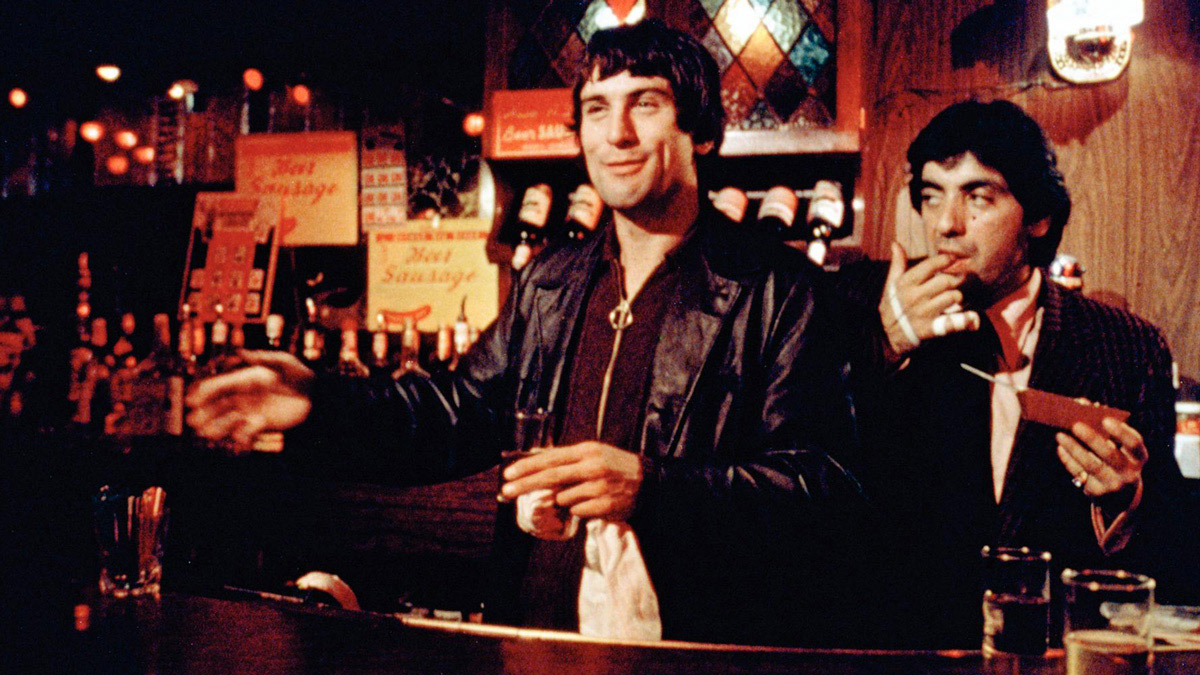
(c)1973, Renewed (c)2001 Warner Bros. Entertainment Inc. All rights reserved.
``Mean Streets'' Martin Scorsese and Robert De Niro's first collaboration reveals the origins of gangster movies
2019.12.14
Roger Corman and John Cassavetes recognized young Scorsese
Influenced by his father, who loved movies, Scorsese started going to the movies as a child, and eventually enrolled in the film department at New York University, where he aspired to become a director. As The Graduate project, he wrote his first full-length work, `` Who's Knocking on the Door?'' ” (67). This work can be said to be the prototype for ``Mean Streets,'' starring Harvey Keitel, who plays an ascetic character named J.R.
The main character, a devout Catholic, feels guilty about his life and struggles with love. It was first released at the Chicago Film Festival in 1967, and America's national film critic Roger Ebert wrote an article in the Chicago Sun-Times praising the film.
“At this festival, ``ICall First'' (the first film title that preceded ``Who's Knocking on the Door?'') left a huge impact. Because it was
“Who’s knocking on the door? ” Preview
Ebert seems to have thought of the film as a fusion of two trends in film history. One is Major's high-quality works that realistically depict human emotions, such as `` Wharf '' (54) and `` Marty '' (55), and the other is New York's underground works such as John Cassavetes and Jonas Mekas. This is the flow of the movie. Ebert said: ``This Scorsese film combines the best of both worlds, and marks a truly new moment in American film history.''
Roger Corman, who was known as the ``King of B-movies'' in the West Coast independent world, also liked this film and gave Scorsese the Being There to make `` The Execution Tomorrow' ' (1972). It was a low-budget film that vividly depicted young Outsider in the 1930s, but Corman was satisfied with the outcome, and Scorsese was able to learn the art of making popular films.
Scorsese started looking for investors for ``Mean Streets'' and approached Corman, but at the time, a new type of black film like `` The Black Jaguar '' (1971) was popular, so He reportedly offered to invest in the film if it would be made with a cast of actors. Scorsese turned down the idea, and Jonathan Taplin, the band's tour manager, became the producer.
"Execution tomorrow..." preview
However, it appears that the staff he met on ``Mean Streets'' also participated and helped the newcomer Scorsese. The film's lead actor, David Carradine, also appears in a small role. Additionally, a scene from Corman's film `` The House of Black Cats '' (1964) will also be included in the film.
“Who’s knocking on the door? John Cassavetes, a New Yorker who had praised Scorsese highly, did not like ``The Execution Tomorrow...'' and advised Scorsese, ``You should make a movie that is more like you .'' (He admires Cassavetes and was on the staff for Cassavetes' directorial film Minnie & Moskowitz (1971)).
Scorsese teamed up with screenwriter Murdick Martin, one of his film buddies, to complete the script for ``Mean Streets,'' which he had been working on for years.
The best music movie where you can enjoy Scorsese's vivid sensations.

